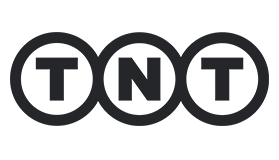Fitness and Nutrition: the privileges
Fitness and Body-building are mainly anaerobic sports disciplines, i.e. characterized by maximal and submaximal explosive exercises. For this reason, the energy-plastic expenditure of sugars and proteins is particularly high.
Nutrition and supplementation play a key role in supporting, toning and increasing muscle mass.
Carbohydrates are the body's fuel, and in these disciplines they must be taken on a regular basis to support the high energy requirements.
Food sources of animal proteins (e.g. milk and derivatives, eggs, meat, fish) have a biological nutritional efficiency higher than vegetable proteins (e.g. soy, pea, rice, etc.). The former are in fact complete and rich in all essential amino acids, the latter (in particular those of cereals) are lacking in some of them. Every day the body destroys and rebuilds proteins (protein turnover) to ensure perfect physical efficiency. Since there is no protein reserve in the human body, we have to introduce a certain amount of food every day. It is equally important to distribute the protein intake throughout the day, at least in the three main meals, but also in any snacks.
In the course of long and intense training sessions, the muscle undergoes catabolism ("burns" itself), undergoes micro-traumas that generated an inflammatory condition. This mechanism is at the basis of growth, but it must naturally be compensated for with adequate nutrition in the so-called post-workout recovery phase. In the hours following training, anabolism (anabolic window) intervenes, which translates into muscle building, the more effective the better the training and the more functional the diet.
In post training it is essential to provide proteins, branched chain amino acids and glutamine, easily assimilable carbohydrates, specific nutrients that favor the restoration of energy supplies and promote the processes of synthesis of new proteins and therefore growth.
Carbohydrates play a fundamental role, from an energy point of view, but indirectly support all the intense metabolic activity. The availability of carbohydrates promotes the metabolism of proteins.
For this, they must be taken regularly both during meals and during and after training sessions. In particular, it is good to favor complex carbohydrates, coming from pasta and brown rice, or maltodextrin from corn and "Vitargo" from barley.
The diet of those who practice fitness and body-building must also contain at least 4 portions of fruit and vegetables, which provide essential vitamins and minerals, and a good selection of saturated and unsaturated fats.
The latter are in particular contained in vegetable oils and fish. In turn, fish contains Omega 3 fatty acids (EPA and DHA), useful for counteracting muscle and joint inflammation and for keeping the cardiovascular system in excellent health and protecting the osteoarticular system.








